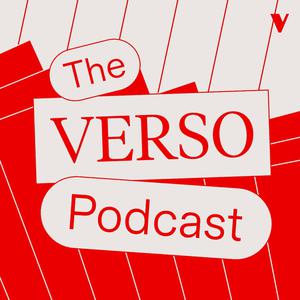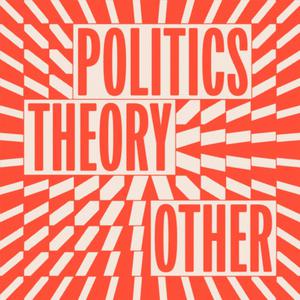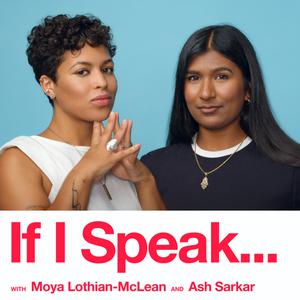
Macrodose
Planet B Productions
Your weekly fix of everything economics. Hosted by James Meadway.
- 21 minutes 55 seconds[Excerpt] On Grief and Struggle w/ Sarah Jaffe, Camille Barbagallo and Asad Rehman
James is on personal leave this week, so we’re bringing you a special recording from October 2024: the book launch of From the Ashes: Grief and Revolution in a World on Fire by Sarah Jaffe. Find the full episode at patreon.com/Macrodose.
Grief is everywhere in today’s world, yet even in our movement spaces, it’s often a topic left unspoken. As we navigate an era of intersecting crises, how can we carve out space for our essential human needs—rest, care, and time to mourn—while organising to meet the urgent challenges of our time?
Sarah is an acclaimed labour journalist based in New Orleans, USA, is the best-selling author of Work Won’t Love You Back: How Devotion To Our Jobs Keeps Us Exploited, Exhausted, and Alone and Necessary Trouble: Americans in Revolt.
This event is guest-hosted by Dalia Gebrial, Lecturer in Geography and Social Justice at King’s College London, and features Camille Barbagallo and Asad Rehman - interviewees in Sarah’s book, offering their powerful perspectives on grief and organising.
Buy the book: From the Ashes: Grief and Revolution in a World on Fire
James will be back behind the microphone very soon, but in the meantime, we hope you enjoy this important and inspiring conversation.
22 January 2025, 5:00 am - 43 minutes 22 secondsThe Break Down: Capitalism Without Growth? w/ Hans Stegeman
Politics is increasingly polarised, but if there’s one thing politicians of all major parties can agree on, it’s growth — that their political rivals failed to deliver growth, that we need more of it, and that getting it will solve all of our problems, from inequality and poverty to crumbling public services and stalling investment.
But not everyone agrees. For a growing movement of post-growth and degrowth economists, economic growth is neither neutral nor desirable. Instead, many increasingly call for the abandonment of our growth-dependent economic model on the basis that unfettered growth is driving our climate and ecosystems to the brink.
Our guest today, Hans Stegeman, is an unusual figure in this community — a banker who wants finance, and the wider economy, to move beyond growth for the sake of the planet. Hans is Chief Economist at Triodos Bank, as well as a leading writer and thinker on post-growth economics. In today’s episode, Hans and Adrienne discuss degrowth, the myth of green finance, and why breaking the rules of mainstream economics is the first step to a sustainable future.
16 January 2025, 5:00 am - 24 minutes 40 secondsWildfires, Smoke, and Inequality
On this week's MACRODOSE, James Meadway unpacks: the wildfires in California and their potentially catastrophic economic fallout (1:20), a New York Times piece on the politics of climate change and whether it’s time for a new “green populism” (11:54), and the financial mess Keir Starmer’s government is already finding itself in (17:00).
Biden Left us Behind with a "Prius Economy": https://www.nytimes.com/2025/01/07/opinion/electric-vehicles-tax-credits.html
For exclusive content, including The Fix—Macrodose's monthly newsletter—and to support the show, visit: https://www.patreon.com/macrodose.
Got a question or comment? Reach out to us at [email protected].
To learn more about the work we do at Planet B Productions, head to planetbproductions.co.uk.
15 January 2025, 5:00 am - 18 minutes 15 secondsIndia's Climate Crossroads
On this week's MACRODOSE, James Meadway unpacks: India’s economic slowdown and how climate change is transforming traditional models of development (0:48), Trump’s bid to buy Greenland and the geopolitical race for Arctic resources (8:00), and the surprising economics of olive oil, with prices finally expected to fall this year (13:08).
For exclusive content, including The Fix—Macrodose's monthly newsletter—and to support the show, visit: https://www.patreon.com/macrodose.
Got a question or comment? Reach out to us at [email protected].
To learn more about the work we do at Planet B Productions, head to planetbproductions.co.uk.
8 January 2025, 5:00 am - 57 minutes 46 seconds[BONUS] On Climate Realism w/ Ajay Singh Chaudhary
Macrodose is on a winter break this week, but we’re excited to share a special recording from back in May 2024: the book launch of The Exhausted of the Earth by Ajay Singh Chaudhary.
This compelling conversation, hosted by Dalia Gebrial, Lecturer in Geography and Social Justice at King’s College London, dives into the urgent political and scientific realities of the climate crisis. Ajay explores the bitter struggle between those clinging to the power, wealth, and security of the status quo and the rest of us—exhausted, in every sense, by “business-as-usual.”
Together, they unpack the radical politics and collective power needed to navigate our burning world, moving beyond survival toward something far better.
📚 The Exhausted of the Earth is available now: Buy the book here.
We’ll be back from our winter break very soon with regular Macrodose programming. Thank you for joining us, and stay tuned!
1 January 2025, 5:00 am - 43 minutes 15 seconds2024 - A Year in Review w/ Adrienne Buller
This week, Macrodose teams up with our partner show The Break Down for a special crossover episode. James Meadway and Adrienne Buller look back on the whirlwind that was 2024 – a year defined by political upheaval, economic instability, and escalating climate crises.
They revisit the standout stories of the year, from surging infectious diseases and climate-driven inflation to the unraveling of the post-war global order.
Looking ahead to 2025, they explore the big macroeconomic trends we need to be tracking and ask: how do we make sense of these challenges, and what does a hopeful, sustainable path forward look like?
A huge thank you to our Patreon supporters for making this show possible over the past twelve months. From all of us at Macrodose and The Break Down, we wish you a joyful and restful winter break.
For exclusive content, including The Fix—Macrodose's monthly newsletter—and to support the show, visit: https://www.patreon.com/macrodose.
Got a question or comment? Reach out to us at [email protected].
To learn more about the work we do at Planet B Productions, head to planetbproductions.co.uk.
18 December 2024, 5:00 am - 18 minutes 33 secondsTrump, China, and the New Cold War
On this week's MACRODOSE: James Meadway explores the new Cold War as Trump gears up to escalate US-China trade tensions (1:47) and examines the broader geopolitical and environmental shifts challenging the postwar order (12:04).
AI-Generated Production Networks Paper: https://aipnet.io/paper/
For exclusive content, including The Fix—Macrodose's monthly newsletter—and to support the show, visit: https://www.patreon.com/macrodose.
Got a question or comment? Reach out to us at [email protected].
To learn more about the work we do at Planet B Productions, head to planetbproductions.co.uk.
11 December 2024, 5:00 am - 43 minutes 28 secondsThe Break Down: After Overshoot w/ Andreas Malm
In 2024, we’re set to break a major climate threshold for the first time: this will be the first calendar year in which global average temperatures breach the 1.5 degree Celsius threshold enshrined in the Paris Agreement. Importantly, while one year at this temperature doesn’t mean all is lost, it does fire a profound warning shot over our faltering progress on mitigating and adapting to the climate crisis.
While every fraction of a degree matters when it comes to the climate, the consensus is clear that above 1.5C the severity of impacts and risk of tipping points like mass coral reef die off or the collapse of the Greenland ice sheet become substantially higher. You might therefore expect this to be front page news. Yet compared with its gravity, it has barely made headlines. If, like us, you’re wondering why — as it turns out, this was always part of the plan.
In this episode, Adrienne and Andreas Malm break down the concept of “overshoot”, how it’s tied up with the power of fossil fuels, and the future of climate politics, from ecofascism to geoengineering.
Andreas Malm is an associate professor at Lund University, an activist and the author of several books, most recently Overshoot: How The World Surrendered to Climate Breakdown, co-written with Wim Carton.
5 December 2024, 5:00 am - 17 minutes 3 secondsCan We Climate-Proof Our Food?
On this week's MACRODOSE, James Meadway discusses the battle to develop climate-resilient potatoes (0:50), a new proposal on revamping Britain’s council farms (7:33) and a brief note on Trump’s new appointments, what can we expect from MAGA 2.0? (11:23).
Abundance Report: https://www.in-abundance.org/latest/new-report-food-systems-in-common
For more content, including The Fix - Macrodose's monthly newsletter - and to support the show, visit: https://www.patreon.com/macrodose
Got a question or comment? Reach us at [email protected]
For more about the work we do at Planet B Productions, go to planetbproductions.co.uk
4 December 2024, 5:00 am - 14 minutes 14 secondsCOP29 Review: The Trillion-Dollar Climate Shortfall
On this week's MACRODOSE, James Meadway explores the disappointing outcomes of COP29 in Baku, focusing on the economics of financing green transitions in the Global South (0:38), and examines how China’s $2 billion bond sale in Saudi Arabia reflects the rise of a multipolar world (8:16).
For more content, including The Fix - Macrodose's monthly newsletter - and to support the show, visit: https://www.patreon.com/macrodose
Got a question or comment? Reach us at [email protected]
For more about the work we do at Planet B Productions, go to planetbproductions.co.uk.
27 November 2024, 5:00 am - 17 minutes 43 secondsFarmers, Taxes, and Food Politics
On this week's MACRODOSE, James Meadway examines the growing political battle over food policy as farmers protest inheritance tax changes (0:46), new forecasts from the Network for Greening the Financial System on the economic damage climate change could inflict globally (7:11), and finally, James tackles a listener question: do we need more than a Green New Deal to revive our struggling economy? (11:24).
NGFS Report: https://www.ngfs.net/sites/default/files/media/2024/11/05/ngfs_scenarios_high-level_overview.pdf
For more content and to support the show, visit: https://www.patreon.com/macrodose
Got a question or comment? Reach us at [email protected]
For more about the work we do at Planet B Productions, go to planetbproductions.co.uk
20 November 2024, 5:00 am - More Episodes? Get the App
Your feedback is valuable to us. Should you encounter any bugs, glitches, lack of functionality or other problems, please email us on [email protected] or join Moon.FM Telegram Group where you can talk directly to the dev team who are happy to answer any queries.
 Novara Media
Novara Media
 The Verso Podcast
The Verso Podcast
 Politics Theory Other
Politics Theory Other
 Novara Live
Novara Live
 The Owen Jones Podcast
The Owen Jones Podcast
 If I Speak
If I Speak